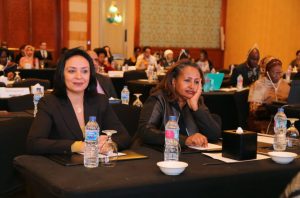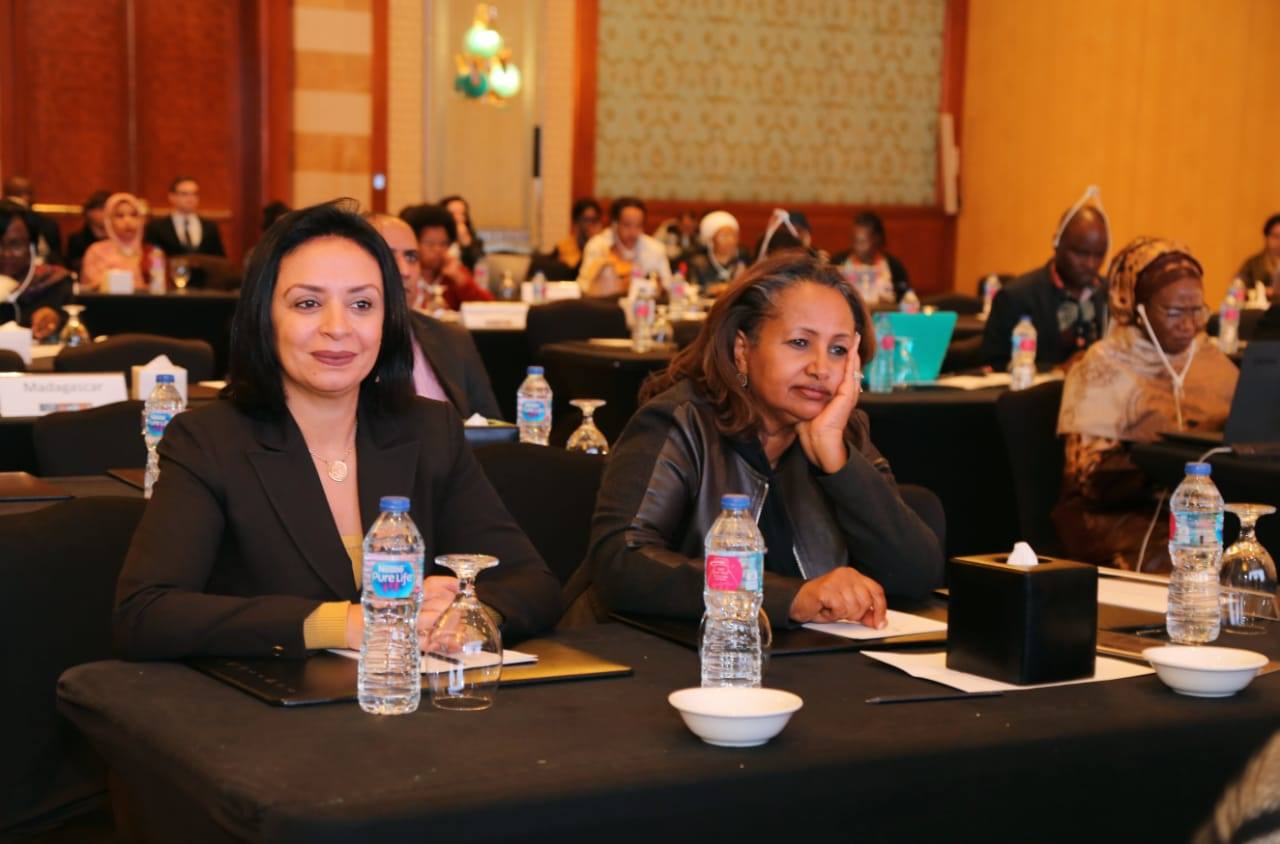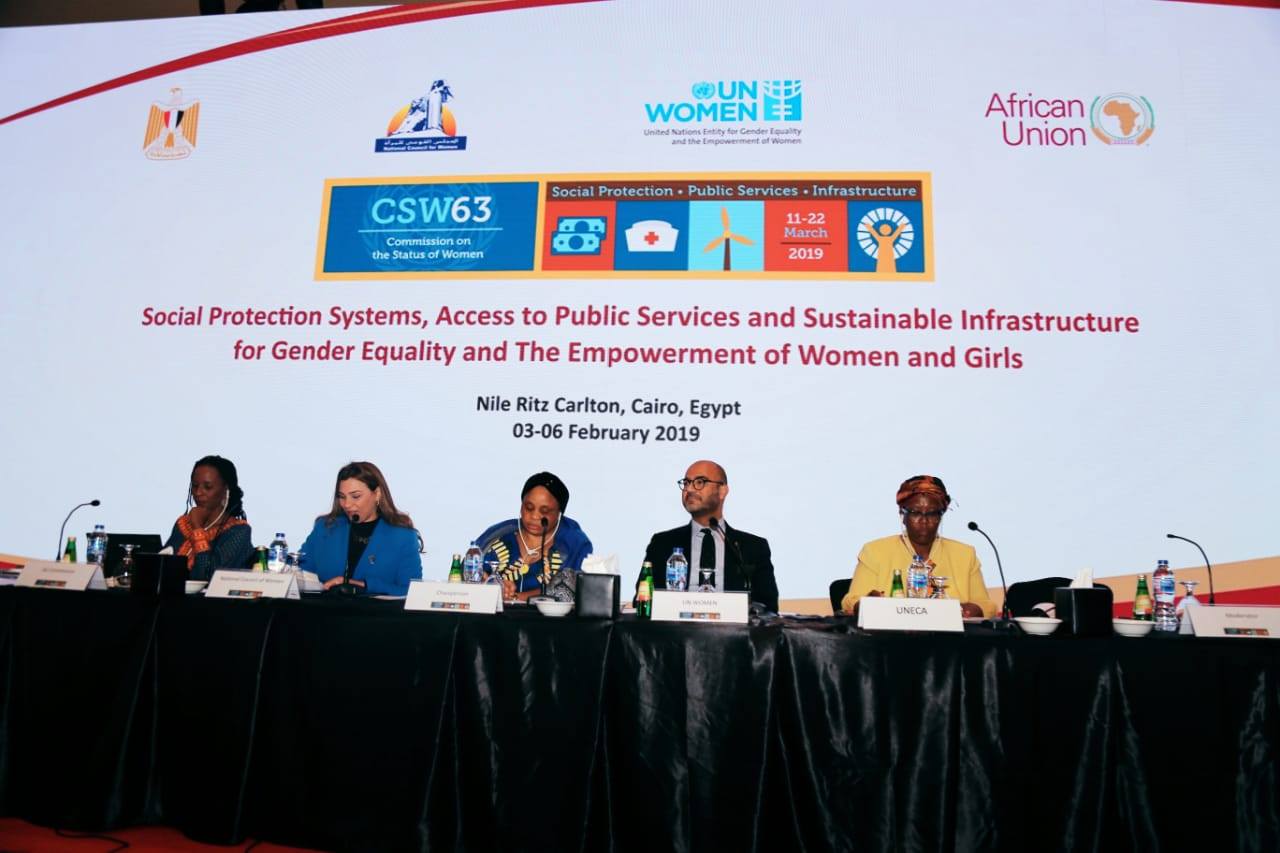#CSW63 Must Look at the Effect of Militarization
Posted on: February 5, 2019, by : Editor

Hibaaq Osman’s remarks to the UN Women and African Union preparation event for CSW 63, Social Protection Systems, Access to Public Services and Sustainable Infrastructure for Gender Equality and the Empowerment of Women and Girls.
It’s very welcome to be here representing civil society looking ahead to the priority theme of CSW because in many countries in the Arab region, civil society – and in particular women’s civil society – is trying to provide something of a safety net for women where social protection systems are either not providing for women, or are not there at all.
Across the Arab region, we see great variation in women’s access to healthcare, with analysis hampered by a lack of reliable data – a problem that we frequently experience when considering development issues and the impact on women in the region.
What is clear from the region, however, is the devastating impact that conflict has on access to healthcare for women and girls, and that is what I will briefly focus on, before addressing some general and specific recommendations.
Conflict
Instability, disorder and war not only have the effect of increasing immediate demand for health services – for example, through the impact of violence – but the disruption and displacement that inevitably result have wide-ranging effects.
- People with long-term conditions have their treatment schedules interrupted
- The production and supply of vital medicines are disrupted
- The physical infrastructure of healthcare systems might be damaged, destroyed or become cut off for populations
We know from the work that informs the women, peace and security agenda that women are disproportionately impacted by conflict, and that refugee women are especially at risk from the disruptive effects of conflict on access to healthcare.
Research is clear that “conflict can negatively impact all aspects of reproductive health, directly through damage to services, gender-based violence and forced displacement of populations and indirectly through reductions in the availability of basic healthcare.” When researchers looked into the situation for Syrian refugee women in Lebanon, they found that the complex healthcare needs of women are not being met – and this is the story across the region when it comes to women affected by conflict.
Some of the key issues that negatively impact access to healthcare are:
- Financial barriers
- Unavailability of services
- Awareness of available services
All of these are are felt particularly keenly by women, who are more likely to lack financial independence, have more complex health needs – i.e. reproductive health, and have an increased likelihood of finding themselves head of the household, which gives them greater responsibilities.

Recommendations
There are two particular changes that would have an impact across the board in relation to access to healthcare for women and girls:
- We need to see women in leadership positions in national health policy. Healthcare systems will not be fully sensitive to the needs and experiences of women if women have not been part of their design. That does not simply mean women are consulted in developing these systems – women have to be leading in every stage – design, implementation, evaluation, ensuring fully responsive systems.
- Accountability. Healthcare systems will not change if authorities are not answerable for the quality and condition of the services they provide, and accountable to the people who are accessing them.
We must emphasize that these issues relate to access to healthcare – and indeed, to public services in general – in all situations, whether in peace, during conflict or post-conflict.
It is important to note that women’s participation and leadership are fundamental aspects of the women, peace and security agenda – which is of paramount importance when we talk about dealing with the impact of conflict on women.
It cannot be overstated that proper implementation of 1325 and its related resolutions would have a serious and sustained positive impact on access to healthcare for women and girls who have been affected by conflict.
That is something that requires political will.
Targeted resource. Refugee women are suffering because the healthcare services they need have not been made available to them. Local and international response, the donor community, it takes political will and resource to ensure that women have appropriate access to healthcare.
I finish by noting that we must also look clearly and honestly at the role that militarization has played in disrupting and preventing women’s access to healthcare. Militarization casts a long shadow, and we cannot ignore this.
